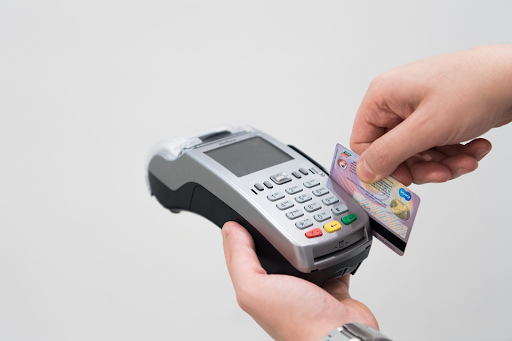A subcategory of merchant payment processing services called high-risk credit card processing is geared toward businesses that traditional banks deem “high risk.” The processor will often accept additional risk exposure from chargebacks and fraud in exchange for higher revenue.
The risk associated with credit card processing can differ from what is regarded as “typical” for many reasons. However, if we dig further, we find that the main risk is the elevated risk offered by chargebacks.
The kind of goods or services being offered or the typical monthly dollar amount of sales may be to blame. It might also be the areas or nations where you conduct business. Any of these elements may make you more vulnerable to fraud, abuse, and the chargebacks that arise from such behavior.
You can also check our blog credit cards for high risk for risk associated with merchant accounts.
Describe a high-risk account
When they think there is a substantial probability that an account may have chargebacks, fraud, or a significant amount of returns, payment processors classify the account as high-risk. It may be the case for many reasons, such as that you are a new merchant that has never accepted payments before or if your industry is regarded as high risk and has a high probability of fraud. To cover this risk, processing costs are for high-risk merchant accounts.
High-Risk Equals Higher Fees
Although each credit card processing platform is unique, high-risk merchant accounts will always be more. Processing fees will sometimes be higher and, in some circumstances, double those of low-risk merchant accounts for all transactions.
Although chargeback fees (fees you pay when a customer challenges a transaction directly with their credit card) are also paid by low-risk merchants, high-risk merchants typically pay increased chargeback fees.
Businesses that are regarded as High-Risk
It’s helpful to know in advance whether your industry is regarded as high-risk so you can make appropriate plans. Some of the companies that come into this category are listed below:
- Gambling
- Online dating
- E-commerce
- Network Marketing (MLM)
- Vape, cbd marketing, and e-cigarette stores
- Services and businesses that accept recurring payments
- The adult industry
- Travel agencies, airlines, and cruise lines are examples of travel-related businesses
- Electronic and furniture stores
Debt recovery
High-risk credit card processing may be an unknown area for businesses looking to open a merchant account. It becomes considerably more challenging for many businesses to accept credit cards when it involves “high-risk” credit card processing.
Fees are always higher for high-risk enterprises, and specialized payment processors are typically required. Processors typically steer clear of these “dangerous” merchants because of the obvious perceived risks.
The likelihood of chargebacks can be increased by many elements, including the variety of goods or services supplied, the average monthly dollar amount of sales, the countries the merchant sells in, and others. Banks and processors will be exposed to potential losses of millions as a result.
Benefits and Drawbacks of Processing High-Risk Credit Cards
Benefits
Flexibility in billing
The amount of money standard merchants make from subscription billing might be restricted by processors. They may also impose restrictions on specific product categories or high-ticket sales. Increased flexibility in billing procedures may be possible with high-risk processors.
Increasing the Chargeback Threshold
The number of chargebacks issued by typical merchants must stay within a specific allowable limit. If not, they might be able to process payments again and end up placed on the match history.
High-risk processor users can frequently maintain a higher chargeback percentage without running the risk of losing their processing. Merchants with a higher-than-average chargeback liability may find this appealing.
New Business Categories
Credit card networks have a long list of goods and services they deem too dangerous for regular retailers to accept. Many companies in the travel, telemarketing, gaming, tobacco, and pharmaceutical industries will need help to use a conventional credit card processor. You can sell products under any merchant category code if you have a high-risk account.
Global Growth
Merchants may be restricted from trading in various currencies by standard processors. Additionally, they might forbid you from doing business with clients in countries other than Western Europe or the United States.
High-risk credit card processing may seem more alluring due to the earning potential associated with foreign sales.
Drawbacks
Reserves for Merchant Accounts
High-risk payment processors highly need a merchant account reserve. It is a savings account that doesn’t pay interest that the acquiring bank uses as a form of chargeback protection.
The money in reserve will be available to merchants within 180 days following the initial transaction. Even without chargebacks, this delay may make high-risk companies unprofitable.
Increased Chargeback Fees
If a merchant has a high rate of chargebacks, a high-risk payment processor might be willing to engage with them, but this readiness has a price. Typically, the processor will charge additional fees for each distinct disagreement.
These costs quickly build up and are a significant drawback of high-risk processing.
Harm to reputation
Working with a high-risk payment processor can be the best option, but you should proceed cautiously. If your business is labeled as “high-risk” due to chargeback issues, you might not be able to deal with traditional payment service providers in the future.
Although there is a lot of profit potential, high-risk company strategies are only suitable for some.
More Expensive Services
Every processor operates under the premise that chargebacks from high-risk clients will always be higher. They could impose higher startup costs and monthly fees to counteract this risk. Additionally, the cost of processing will be higher than what retailers currently pay.
High-risk processing may become less desirable as a result of these hefty fees.
Conclusion
A new online business owner should be familiar with credit card processing companies. Nowadays, many customers prefer to use credit cards to complete purchases, so you must provide the customer with their preferred payment alternatives as a merchant.
As a merchant, you must comprehend credit card processing and whether your industry can use it effectively. Making a choice is simple once you know what your company requires.








